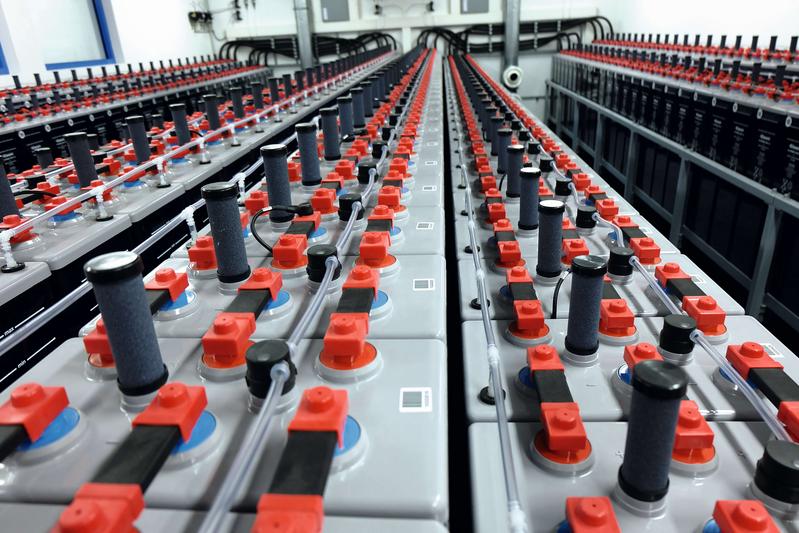
Large-scale battery storage system in field trial

The large-scale battery system can supply the equivalent of up to 10,000 households with electricity for one hour.
© BINE Information Service, Dr. Franz Meyer
The interaction of five different battery systems based on lithium-ion or lead-acid is being investigated there on a large scale. The system participates in regular trading in the electricity market for system services. After one year of operation the initial results are now available.
Testing technology and business models
The large-scale storage system has six strings in which various lithium-ion batteries are installed, and four strings with lead-acid batteries. The scientists are using this modular design to test the interaction of the different battery systems.
Each of the strings can be individually controlled and regulated. Lithium-ion batteries are more suitable for short-term power storage and output, while those with lead-acid are more suitable for short and medium charging and discharging times.
The research project is focussing on the ageing, technical reliability and service life of the systems as well as on optimised battery management. The large-scale storage system runs fully automatically and is controlled by an external control centre.
It is certified for participation in the balancing energy market. In the event of a sudden power demand in the grid the storage system can immediately supply the required electricity for seconds or minutes in order to keep the grid frequency stable.
The storage system has an output of 5.8 MW with a storage capacity of 5.6 MWh. The output and capacity of the system are roughly equivalent to the electricity consumed by 10,000 households in an hour. The Institute for Power Electronics and Electrical Drives (ISEA) at RWTH Aachen University is conducting the research together with industrial partners.
You found all informations about the BINE Projectinfo brochure entitled “Modular battery storage system supplies balancing energy” here:
http://www.bine.info/en/press/press-releases/press/pressemitteilung/grosser-batt…
Uwe Milles/Birgit Schneider
presse(at)bine.info
About BINE Information Service
Energy research for practical applications
The BINE Information Service reports on energy research topics, such as new materials, systems and components, as well as innovative concepts and methods. The knowledge gained is incorporated into the implementation of new technologies in practice, because first-rate information provides a basis for pioneering decisions, whether in the planning of energy-optimised buildings, increasing the efficiency of industrial processes, or integrating renewable energy sources into existing systems.
About FIZ Karlsruhe
FIZ Karlsruhe – Leibniz Institute for Information Infrastructure is a not-for-profit organization with the public mission to make sci-tech information from all over the world publicly available and to provide related services in order to support the national and international transfer of knowledge and the promotion of innovation.
Our business areas:
• STN International – the world’s leading online service for research and patent information in science and technology
• KnowEsis – innovative eScience solutions to support the process of research in all its stages, and throughout all scientific disciplines
• Databases and Information Services – Databases and science portals in mathematics, computer science, crystallography, chemistry, and energy technology
FIZ Karlsruhe is a member of the Leibniz Association (WGL) which consists of 87 German research and infrastructure institutions.
http://www.bine.info/en – BINE Informationsdienst














